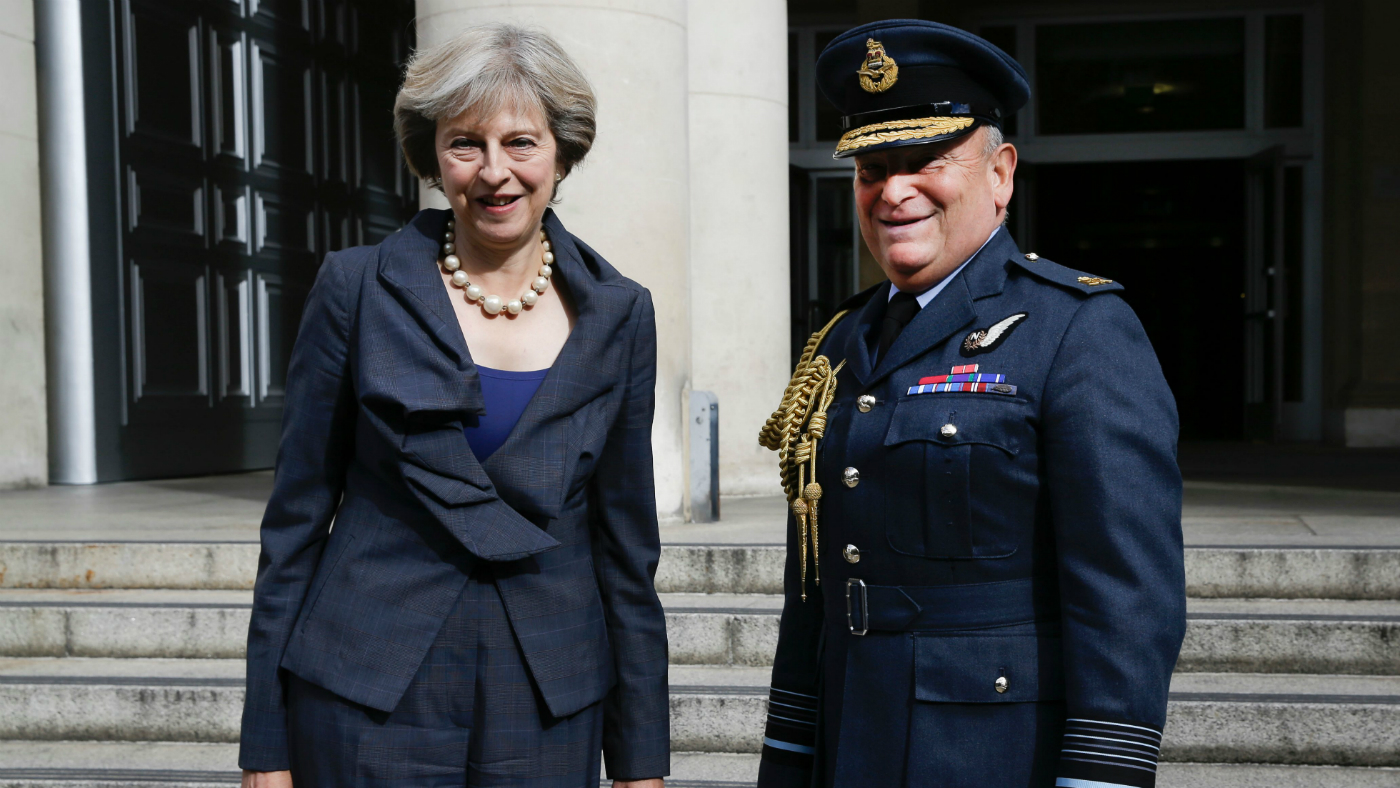Terrorists hiding among migrants, UK defence chief warns
Air Chief Marshal Sir Stuart Peach says Britain must rethink how it 'manages identity'

A free daily email with the biggest news stories of the day – and the best features from TheWeek.com
You are now subscribed
Your newsletter sign-up was successful
Islamic State militants are "hiding in plain sight" among the refugees displaced by fighting in Syria and Iraq, the head of the British Armed Forces has warned.
In a lecture at the Royal United Services Institute, Air Chief Marshal Sir Stuart Peach said that IS members are trying to blend in with migrants and refugees attempting to resettle in Europe.
With Iraqi forces and Kurdish militias eating into territory previously occupied by IS militants, jihadists are fleeing their former strongholds in increasing numbers, the Daily Telegraph reports.
The Week
Escape your echo chamber. Get the facts behind the news, plus analysis from multiple perspectives.

Sign up for The Week's Free Newsletters
From our morning news briefing to a weekly Good News Newsletter, get the best of The Week delivered directly to your inbox.
From our morning news briefing to a weekly Good News Newsletter, get the best of The Week delivered directly to your inbox.
"They are losing territory rapidly," Peach said. "Foreign fighters are being killed and displaced but they are moving in migrant flows, hiding in plain sight."
With some migrants "deliberately trying to destroy their identity documents" either to obscure their country of origin or disguise jihadist affiliations, Peach said that Britain needs to think about how it "manages identity", he said.
Peach's comments echo similar remarks made by Nato's top military commander earlier this year. US general Philip Breedlove told the US Congress in May that IS militants were "spreading like a cancer" among the migrants flowing into Europe.
As IS continues to be pushed back, Peach warned that the global reach of the internet made the risk of a network of "copycat" terror cells springing up across the world a very real possibility.
A free daily email with the biggest news stories of the day – and the best features from TheWeek.com
"The Chinese state has accepted they have a problem. This is not now a localised phenomenon, it is now a wider phenomenon," he said.
He added that the internet is proving a boon not only to global terrorism, but also to Russia's programme of "political subversion".
"It's not a secret that Russia is using cyber as part of state power," he said, adding that Britain had now entered a "strategic state-on-state era of competition" with foreign powers such as Russia and China.
-
 ‘My donation felt like a rejection of the day’s politics’
‘My donation felt like a rejection of the day’s politics’Instant Opinion Opinion, comment and editorials of the day
-
 Trump wants a weaker dollar but economists aren’t so sure
Trump wants a weaker dollar but economists aren’t so sureTalking Points A weaker dollar can make imports more expensive but also boost gold
-
 Political cartoons for February 3
Political cartoons for February 3Cartoons Tuesday’s political cartoons include empty seats, the worst of the worst of bunnies, and more
-
 Home Office worker accused of spiking mistress’s drink with abortion drug
Home Office worker accused of spiking mistress’s drink with abortion drugSpeed Read Darren Burke had failed to convince his girlfriend to terminate pregnancy
-
 In hock to Moscow: exploring Germany’s woeful energy policy
In hock to Moscow: exploring Germany’s woeful energy policySpeed Read Don’t expect Berlin to wean itself off Russian gas any time soon
-
 Were Covid restrictions dropped too soon?
Were Covid restrictions dropped too soon?Speed Read ‘Living with Covid’ is already proving problematic – just look at the travel chaos this week
-
 Inclusive Britain: a new strategy for tackling racism in the UK
Inclusive Britain: a new strategy for tackling racism in the UKSpeed Read Government has revealed action plan setting out 74 steps that ministers will take
-
 Sandy Hook families vs. Remington: a small victory over the gunmakers
Sandy Hook families vs. Remington: a small victory over the gunmakersSpeed Read Last week the families settled a lawsuit for $73m against the manufacturer
-
 Farmers vs. walkers: the battle over ‘Britain’s green and pleasant land’
Farmers vs. walkers: the battle over ‘Britain’s green and pleasant land’Speed Read Updated Countryside Code tells farmers: ‘be nice, say hello, share the space’
-
 Motherhood: why are we putting it off?
Motherhood: why are we putting it off?Speed Read Stats show around 50% of women in England and Wales now don’t have children by 30
-
 Anti-Semitism in America: a case of double standards?
Anti-Semitism in America: a case of double standards?Speed Read Officials were strikingly reluctant to link Texas synagogue attack to anti-Semitism